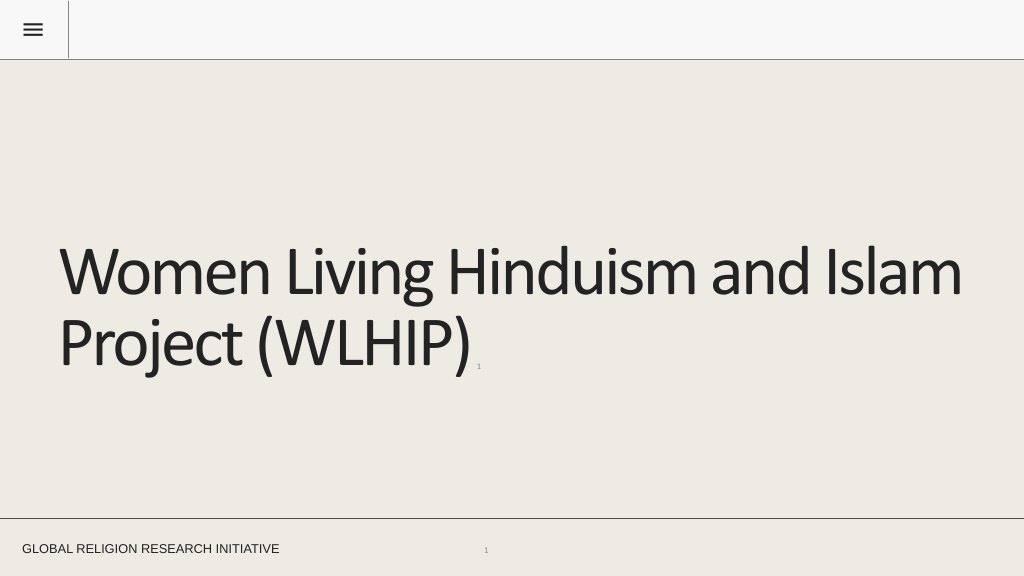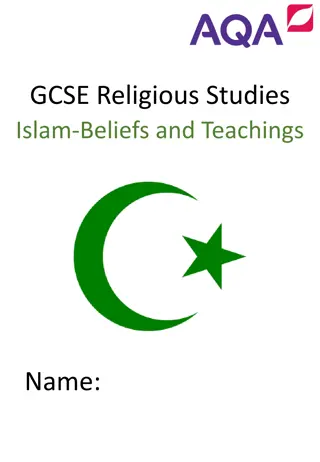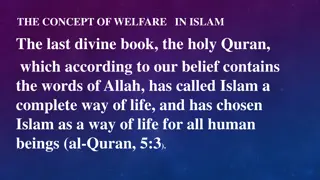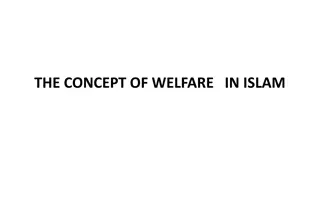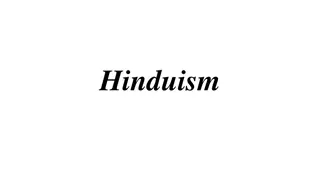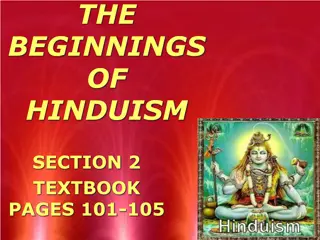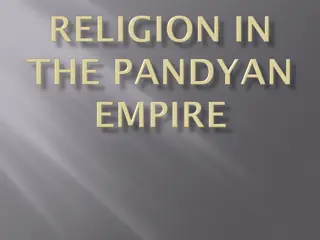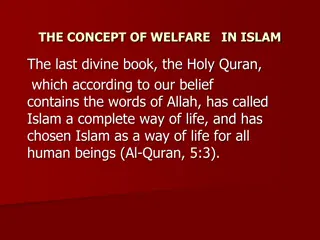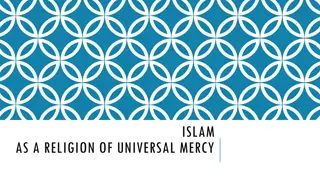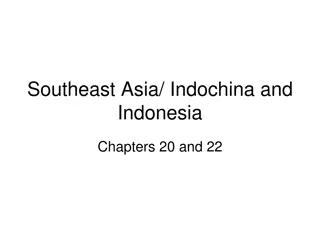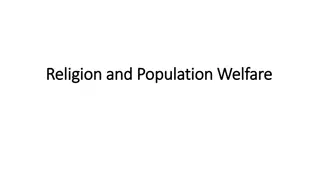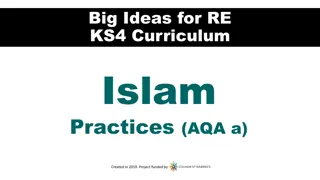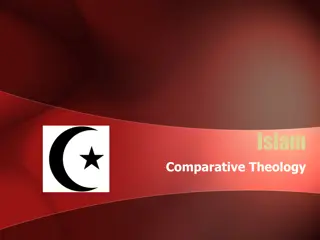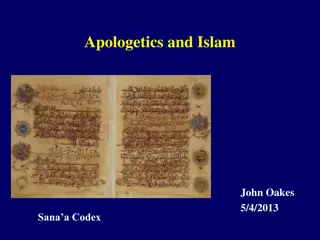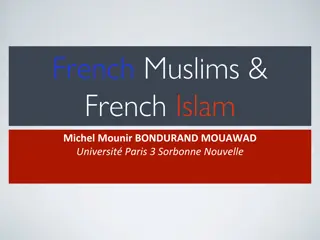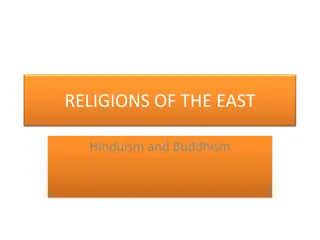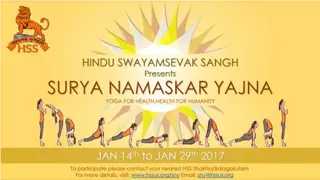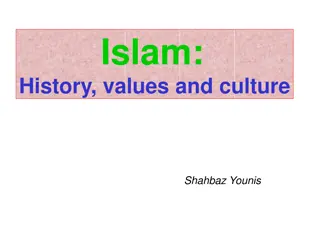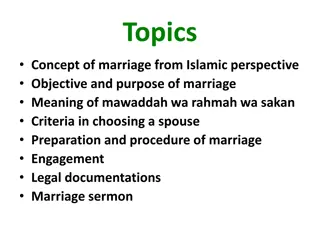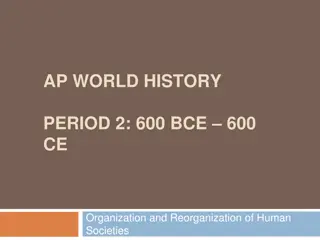Researching Women in Hinduism and Islam
Collaborative WLHIP project aims to develop a shared conceptual framework to study religious practices of Hindu and Muslim women. Focusing on intersectionality, transnationalism, and lived religions, it explores everyday experiences to fill empirical data gaps.
Download Presentation

Please find below an Image/Link to download the presentation.
The content on the website is provided AS IS for your information and personal use only. It may not be sold, licensed, or shared on other websites without obtaining consent from the author. Download presentation by click this link. If you encounter any issues during the download, it is possible that the publisher has removed the file from their server.
E N D
Presentation Transcript
Women Living Hinduism and Islam Project (WLHIP) 1 GLOBAL RELIGION RESEARCH INITIATIVE 1
Topics About WHLIP Project Objectives Theoretical Framework Research Design Data Findings Research Team Publications 2 GLOBAL RELIGION RESEARCH INITIATIVE 2/12
WLHIP is a multi-country and interdisciplinary collaborative research network with scholars from India, Pakistan, Bangladesh and the US. About WHLIP The primary objective of this international scholarly network is to develop a deeper understanding of religion in the lives of different groups of people using a lived religions approach. This networks aims at moving beyond Global North methodological nationalism and create theoretical frameworks based on on North- South efforts and develop understandings of religion, based on different epistemologies, that look across transnational, national and local level structures. 3 GLOBAL RELIGION RESEARCH INITIATIVE 3/12
Project Objectives A ley theoretical question of the project is how do researchers study religions, not from the epistemological position of Christianity, but from the logic of of religions such as Hinduism (Dharma) and Islam (Mazhab and Deen)? Accordingly, the objective is to develop a shared conceptual framework that pushes the boundaries of the existing field through international interdisciplinary scholarly conversations and facilitate a more robust understanding of the dynamics of lived religious practices. Develop a shared conceptual framework The voices of Hindu and Muslim women are rarely heard in academic and public conversations on these religions. Accordingly, this network aims to build a database on life narratives of Hindu and Muslim women from these countries, to generate broader insights about living these religions. 1 Correct the lack of empirical data 4 This network aims to develop a methodological framework based on transnational versions of intersectionality-intersections of structures of power which create racial/class/gender and other structures of power, across global to local spaces.2 Develop a robust methodological framework GLOBAL RELIGION RESEARCH INITIATIVE 4/12
Theoretical Framework Intersectionality Transnationalism Lived Religions Instead of mostly relying on texts, and focusing on religious institutions, expand the scope to structures of everyday living to understand how religious understanding are interpreted, changed, practiced within specific sets of historical and contemporary opportunities and constraints. 5 To understand women s experiences, use intersectionality instead of gender, to specify the structures of power that affect women in any context. (Talking about Hindu or Muslim women is an overgeneralization)3 With the rapidly growing importance of migration and diasporic influences, as well as engagements in digital spaces, transnational contexts are significant along with national and local contexts.4 5 GLOBAL RELIGION RESEARCH INITIATIVE 5/12
LIFE NARRATIVES In the US and India focusing on highly educated women Research Design Our methodological approach led us to select specific methods and tools to build an intersectional framework to studying religion at all stages of the project including recruitment, sampling, reflexivity and data analysis.6 FOCUS GROUPS In the US and Pakistan ETHNOGRAPHY In India 6 ARCHIVAL DATA In India GLOBAL RELIGION RESEARCH INITIATIVE 6/12 6/12
Data Ethnographic data that focuses on the religious understandings and practices of return migrants from the US and West Asia to India. INDIA Archival data on emancipatory Hindu tradition beyond gender binaries News reports of the 2019 Citizenship Amendment Act. Interview data from women impacted by India s 2019 Citizenship Amendment Act (CAA) who have been at the forefront of the anti-CAA protests in India. 7 Interview data from academics in Pakistan PAKISTAN GLOBAL RELIGION RESEARCH INITIATIVE 7/12
Data Interview data from female university students in Bangladesh, many raised in the Middle East, who are religiously oriented but want a religion which allows room for the participation of women in public spaces. BANGLADESH Interview and focus group data from highly educated Hindu and Muslim women in the US navigating both the growth of South Asian Hindu and Islamic fundamentalisms in the diaspora, and the racialization of their religions in the United States. 8 UNITED STATES GLOBAL RELIGION RESEARCH INITIATIVE 8/12
KEY FINDINGS Key Findings Specify context We found transnational influences are significant in constructing lived religions. The politics of racisms overlapped with lived religions. With the increasing importance of digital spaces, religion is no longer confined to practices in sacred spaces, though the conflicts over presence of religion in public spaces continue. Intersectionality remains critical for understanding multiple levels of power. Methods Methodology Requires methods that will allow for significant variation in understanding and practice. We suggest choosing groups to specify generalizability. (We limited our interviews and focus groups to highly educated women). We suggest explaining limits of language on data. Requires a methodology that is decolonial in scope, going beyond the meanings and practice of religion defined with Christianity as the norm. 9 GLOBAL RELIGION RESEARCH INITIATIVE 9/12
Research Team Pakistan/ Bangladesh United States India Bandana Purkayastha University of Connecticut Aparna Rayaprol University of Hyderabad Farhan Navid Yousaf Punjab University Durre Ahmed Nazli Kibria Boston University Anushyama Mukherjee St. Xaviers College Center for the Study of Gender and Culture WHLIP Pitheli Jimo Nagaland University Samia Huq BRAC University Anjana Narayan Cal Poly Pomona 10 Neela Bhattacharya Saxena Nassau Community College Shoma Choudhury Lahiri St. Xaviers College Koyel Khan Asha Mukherjee Vishwa Bharati University Tennessee Weleyan University GLOBAL RELIGION RESEARCH INITIATIVE 10/12
01 05 Seeking Certainty, Security and Spirituality: Religious Conditioning and Global Aspirations amongst Female University Students in Bangladesh Introduction Prema Kurien, Syracuse University Publications Samia Huq 02 04 Living religions across transnational spaces: Experiences of South Asian American Hindu and Muslim women Women and Goddesses of Tantric India: A Liberatory Antidote to Hindu Nationalist Politics Forthcoming 2021. Special Section titled "Lived Religions of South Asian Hindu and Muslim Women in Contemporary South Asia." Nazli Kibria , Bandana Purkayastha Anjana Narayan , Koyel Khan &Farhan Navid Yousaf Neela Bhattacharya Saxena Guest Editors: Anjana Narayan, Bandana Purkayastha & Nazli Kibria. 11 03 06 Return Migration and Religious Transformation among Hindu and Muslim Women in Hyderabad Women s Struggles over Religion and Citizenship in Contemporary India Shoma Choudhury Lahiri Aparna Rayaprol, Anushyama Mukherjee and Pitheli Jimo GLOBAL RELIGION RESEARCH INITIATIVE 11/12
01 05 "Women, Rights and Religion in India: Questioning the Tradition". In Explorations in Women, Rights and Religion, edited by Morny Joy.Sheffield UK: Equinox. 2020 The Role of Religion in Building Terrains of Peace: Journal of Transdisciplinary Peace Praxis. 2020 Chowdhury-Lahiri, Shoma, Iwata, Miho and Purkayastha, Bandana (alphabetically listed). Asha Mukherjee 04 02 Publications Intersectionality Routledge Handbook of Research Methods in the Study of Religions. Edited by Steve Engler. Forthcoming 2020. Gender, religion, and virtual diasporas. Economic and Political Weekly, Special Issue: India, feminisms and diasporas. 2019 Anjana Narayan & Lise.-Helene Smith Anjana Narayan and Bandana Purkaystha 03 06 "Modernity in the Service of Tradition: Women and Gender within Hinduism in the United States". In Asian American Religions, edited by David Yoo and Khyati Joshi. University of Hawaii Press. 2020 12 "Constructing Gendered Religion". In Routledge Handbook of Indian Transnationalism. Edited by Ajaya Kumar Sahoo and Bandana Purkayastha. Taylor and Francis.2019 Lise-Helene Smith & Anjana Narayan Anjana Narayan & Bandana Purkaystha 2 GLOBAL RELIGION RESEARCH INITIATIVE 12
Contact Anjana Narayan anarayan@cpp.edu Bandana Purkayastha Bandana.purkayastha@uconn.edu 13 GLOBAL RELIGION RESEARCH INITIATIVE 2/12
